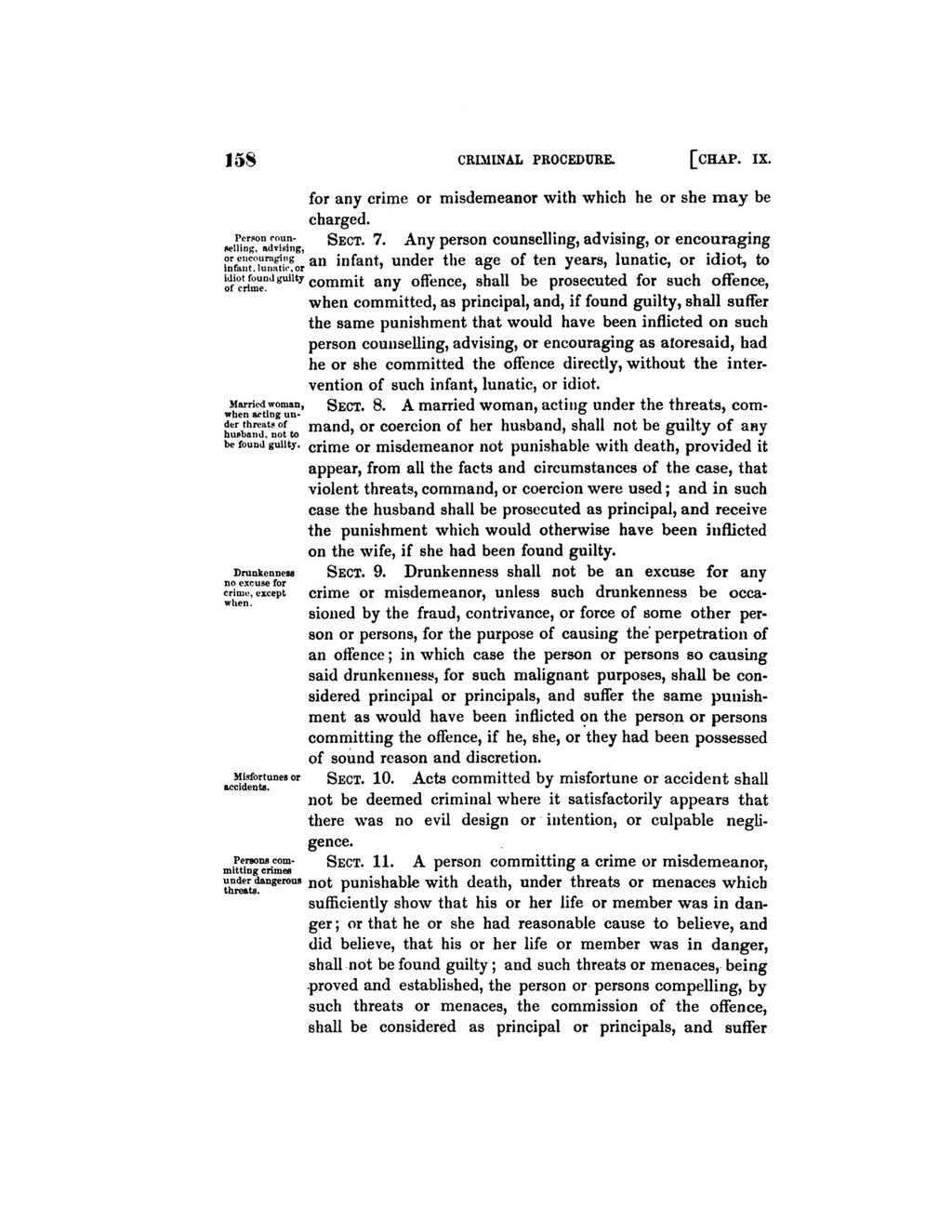for any crime or misdemeanor with which he or she may be charged.
Person counselling, advising, or encouraging infant, lunatic, or idiot found guilty of crime.Sect. 7. Any person counselling, advising, or encouraging an infant, under the age of ten years, lunatic, or idiot, to commit any offence, shall be prosecuted for such offence, when committed, as principal, and, if found guilty, shall suffer the same punishment that would have been inflicted on such person counselling, advising, or encouraging as aforesaid, had he or she committed the offence directly, without the intervention of such infant, lunatic, or idiot.
Married woman, when acting under threats of husband, not to be found guilty.Sect. 8. A married woman, acting under the threats, command, or coercion of her husband, shall not be guilty of any crime or misdemeanor not punishable with death, provided it appear, from all the facts and circumstances of the case, that violent threats, command, or coercion were used; and in such case the husband shall be prosecuted as principal, and receive the punishment which would otherwise have been inflicted on the wife, if she had been found guilty.
Drunkenness no excuse for crime, except when.Sect. 9. Drunkenness shall not be an excuse for any crime or misdemeanor, unless such drunkenness be occasioned by the fraud, contrivance, or force of some other person or persons, for the purpose of causing the perpetration of an offence; in which case the person or persons so causing said drunkenness, for such malignant purposes, shall be considered principal or principals, and suffer the same punishment as would have been inflicted on the person or persons committing the offence, if he, she, or they had been possessed of sound reason and discretion.
Misfortunes or accidents.Sect. 10. Acts committed by misfortune or accident shall not be deemed criminal where it satisfactorily appears that there was no evil design or intention, or culpable negligence.
Persons committing crimes under dangerous threats.Sect. 11. A person committing a crime or misdemeanor, not punishable with death, under threats or menaces which sufficiently show that his or her life or member was in danger; or that he or she had reasonable cause to believe, and did believe, that his or her life or member was in danger, shall not be found guilty; and such threats or menaces, being proved and established, the person or persons compelling, by such threats or menaces, the commission of the offence, shall be considered as principal or principals, and suffer